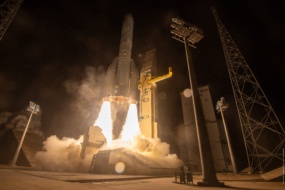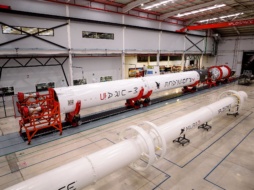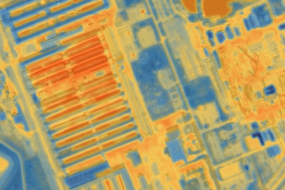‘Twas a busy time in Paris last week. The European Space Agency announced a new cohort of astronauts and announced a budget of €16.9B for the next three years.
The sum falls short of the €18.5B requested by the agency, but still represents a 17% increase over the prior period. Lots of 17s last week:
The 17% funding boost represents the largest budget the agency has ever had since its founding in 1975. The funding boost—kicked in by 22 member states, with ~70% coming from Germany, France, Italy, and the UK—stands against the backdrop of inflation, high energy prices, a choppy macroenvironment, and the war in Ukraine.
ESA celebrated the hard-fought budget, saying it will bolster the continent’s autonomy and leadership in space. “Climate and sustainability will remain ESA’s highest priority, our science and exploration will inspire the next generation, and we shall build a place where European space entrepreneurs thrive,” ESA Director General Josef Aschbacher said.
The funding boost is also rooted in geopolitical considerations. For obvious reasons, ESA is no longer working with Roscosmos, and Soyuz rockets are not available to fly its payloads.
Last month, Aschbacher told AFP that Europe risks “falling out of the race” with Washington and Beijing if it did not invest further in its space priorities. "At the end of these discussions, there must be a single Europe, a single European space policy, and unfailing unity in the face of Chinese ambitions and American ambitions," France's economy minister Bruno Le Maire said last week in Paris.
What’s being funded?
Among other things, a European connectivity constellation and the Rosalind Franklin rover’s mission to Mars were funded. So was Moonlight, an ESA initiative encouraging European industry to deploy constellations of communications and navigation satellites into a lunar orbit.
Here’s a breakdown by category (in $M, converted on Thursday, Dec. 1):



